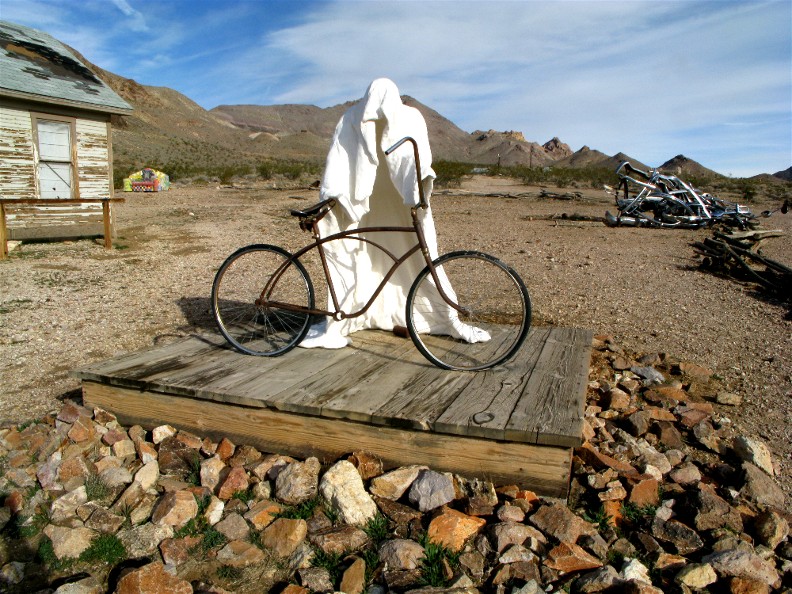So what was the rationale for including this (and by extension Lovecraft, right? Maybe?) in a ghost discussion? It seems like this kind of story works in such a different way, on such different sources of fear, from "ghost as spirit of specific dead person" stories. Although The Shining walks a funny line between these two modes.
That's a damned good question.
Part of the point of this series is an attempt to find the boundaries of what is and what is not a ghost story. I'm interested in the divisions of genre, especially when they are blurred. The ghost story seems to me to be a good place to explore this.
I think that most people would regard a ghost as being the spirit of a dead person (or sometimes other animal) that is still able to interact with the living. Even here it's possible to blur the boundaries. For example how do you seperate a ghost from other undead such as zombie or a vampire? Post-Night of the Living Dead we usually think of zombies as being kind of the opposite of a ghost: a body that still moves around without a spirit. However, there are plenty of examples of zombies that retain their original memories and seek vengeance and/or to be put to rest, in much the same manner as a ghost.
So is it their physical nature that separates them? But what about those cases where a ghost still has a physical form, such as in the Ju-on movies, where ghosts can stab people or break their necks?
I think that a ghost has to be seperate from the physical body, though it can still have a physical form of sorts. If it is a reanimated corpse, rather than a ghost it is something else.
Except, of course, that ghosts in fiction have been known to possess the bodies of the living and/or of the dead. So if a ghost were to possess its own physical body and keep walking around, would it still be a ghost or would it now be a zombie or a ghoul?
What about the concept of a "residual haunting" - the idea that a ghost, rather than being a sentient being, is in some way a recording of past events? This idea was exploited in Nigel Kneale's teleplay The Stone Tape (to be discussed here in mroe detail soon), where a team of experimenters happen across just such a recording and want to know if they can wipe it and record something new. Could a ghost just be a paranormal video recording?
In the case of The Willows, we never actually discover what the mysterious force surrounding the willows actually is. The characters hypothosise that it could be a different form of life that has evolved completely seperately from the life that we know about, which only intersects with our reality at certain points. Could this be an explanation for a ghost? It seems to be the spirit of a living person, but in fact it is something else. (In this case, the story comes from a book called Best Ghost Stories of Algernon Blackwood and the author describes his mysterious entities as "ghosts" even though they are seldom actually spirits of the dead.)
In another story I've looked at, Ghostwatch, what at first seems to be the spirit of a living person turns out to be merely the latest layer of "skin" covering some kind of demonic presence that has haunted the area since at least the stone age. Could a ghost be something that merely assumes human form for its own purposes, stealing the identity of someone who is dead?
In the novel The Haunting of Hill House by Shirley Jackson, there is no mention of the ghosts being any specific people. It is the house itself that is the problem.
Perhaps the meaning of "ghost story" has changed over the years. It might have used to mean any kind of spooky supernatural story, with this term being supplanted by "horror story" in recent times.
I don't have any answers, just a lot of questions. If anyone else has any theories, I'd love to hear them.







I have been mulling over Stephen King's claim that a ghost story must have historical context. For King, I think this is about this giving the unknown element (the Blackwoodian/Lovecraftian/whatever that makes a Bad Place be Bad) something human and comprehensible to kind of hang on. So in the The Shining, none of it's really about the woman in the bathtub or the man in the dogsuit, but that's how the unthinkable evil of the hotel makes itself emotionally/intellectually legible.
ReplyDeleteI wonder if it's maybe this kind of human legibility that makes for a ghost story as opposed to a fantasy/sf story about magical/alien forces. (Why is Solaris not a ghost story?)
The other limit is religion, which is what The Willows hits up against. A ghost in the sense of an inhuman agent that is precisely outside of full human comprehension.
That's a good way to put it re: historical context and human legibility. I especially like that you mentioned the dogsuit. :)
ReplyDeleteI'm less sure of what you mean about the other limit being religion. Is there a chance you could expand on that, please?